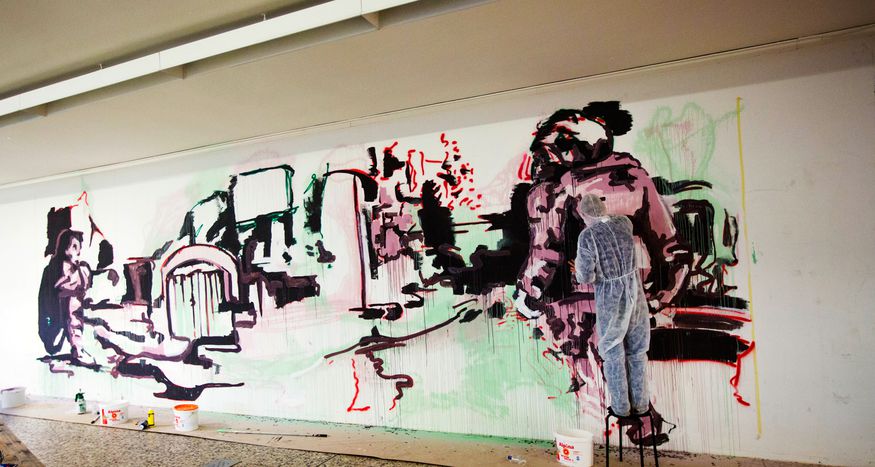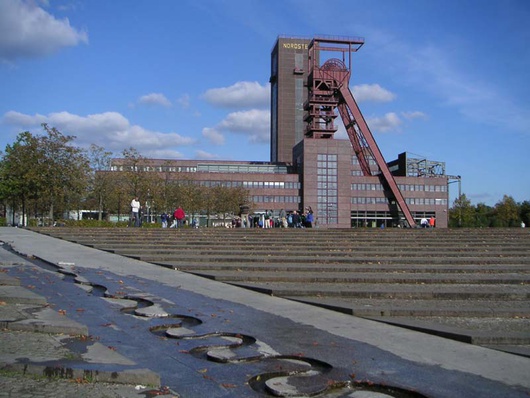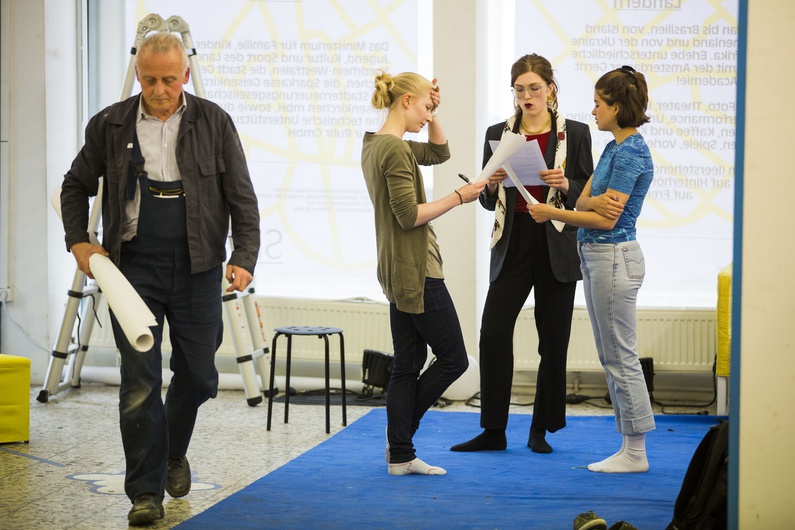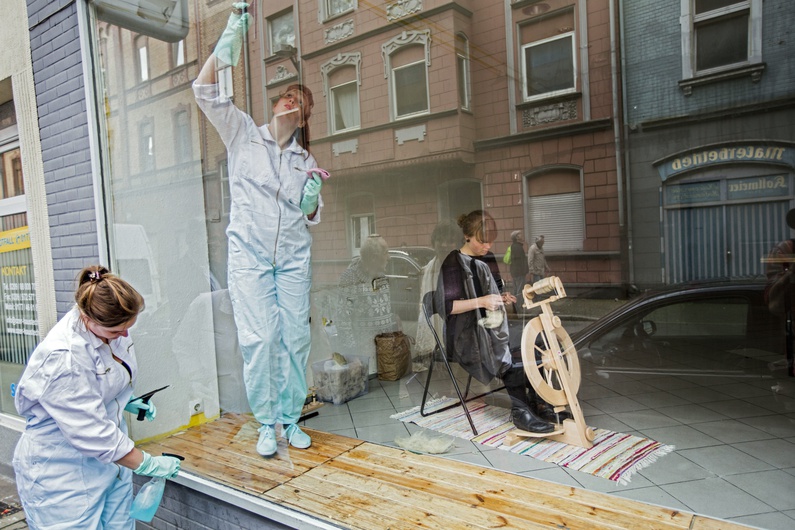
Gelsenkirchen: A City Besieged by Budding Artists
Published on
Translation by:
Alice RobertsonFootball fans will know Gelsenkirchen as home to FC Schalke 04. Real experts may even recognise it as the birthplace of Mesut Özil. Faced with a map, though, most people would find it hard to pinpoint Gelsenkirchen, a city brought to its knees by German deindustrialisation. But now a bunch of budding artists are injecting new life.
In Bochumerstrasse, South Gelsenkirchen, the houses are mainly red brick. It's not exactly an ugly place, I decide. There is even the odd example of Wilhelmine architecture, or so they tell me. All the same, neglect has seen these buildings start to crumble. At street level they harbour shops and businesses, but most seem abandoned or shut. A closer look reveals their windows to be somewhat askew — the result of rather shaky foundations. Tearing them all down would be impossible. Dangerous too, given the chaos that underlies them. And at any rate, demolition is pricey. The result is that while some retain a certain imposing allure, others have long since attained complete decrepitude.
And this is now the Artists' Quarter, I am told. The city could hardly have chosen a more suitable spot for 'exploiting creative potential'.
The Ghetto of Gelsenkirchen
 While authorities have too long neglected the Bochumerstrasse district, it is hard to believe the inhabitants see themselves as living in Gelsenkirchen’s ghetto. The atmosphere here is laid back; familial, even.
While authorities have too long neglected the Bochumerstrasse district, it is hard to believe the inhabitants see themselves as living in Gelsenkirchen’s ghetto. The atmosphere here is laid back; familial, even.
But all the same: 'People who live a block away avoid coming here,' says Volker, whom the council have sent, seeming to believe him capable of miracles. 'Most of all they’re scared of the Romas, mainly Bulgarians and Romanians, who moved here not long ago.'
Mistrust of these migrants runs pretty deep, it appears, although many of them came to the Ruhr Valley hoping to find work in its once thriving industries. On one particular street, men and women of 42 different nationalities live cheek by jowl. It’s a headache at times, Volker tells me, but mainly it’s 'a missed opportunity, because everyone keeps themselves to themselves'.
Along with others, Volker is fighting to change the status quo. At his side is a band of young artists, second year students from Amsterdam’s Gerrit Rietveld Academy. Hailing from all four corners of the globe, these 53 students have spent the last two weeks besieging the badlands of Bochumerstrasse, gathering material for works of art inspired by the lives of local people.
Christiane, heading the project, is convinced that it is working: 'Since the students set up shop here, you can tell that people want to take part and talk about their experiences. On my way to work the other day, I passed an Italian restaurant. I’d walked past before, and I could tell that the owner was curious. But this time he grabbed me and invited me in. He told me the story of his life. At least, I think he did. I didn’t understand everything. He barely spoke a word of German.'
Proof of this curiosity does not take long to materialise. As if on cue, a young woman hurtles into the office and interrupts our conversation. Well dressed, thirty-something, brunette, she is also noticeably drunk. Beer bottle in hand, she launches into broken, eager English, and seems to be trying to express the impact that the young artists have had on the area: 'This is not a masquerade, it’s about life.'
Volker and his two colleagues are visibly touched — proud, even, that people now feel empowered to waltz in as if they owned the place. All part of the project’s purpose.
.

TWO WEEKS TO REINVENT BOCHUMERSTRASSE, GELSENKIRCHEN
The students from Rietveld Academy are based in an old bike shop. It was refurbished in a rush, and with good reason. Three months before their arrival there was nothing here.
The walls are blank, save those bearing the haphazard graffiti of local youths. Plywood boards provide a partition between the two rooms. The larger one serves as a studio, a meeting room, but also as a bicycle shed and storeroom. At the back I can hear a drill, and it drives home its point most effectively: this is a hive of activity, of constant creativity. Outside, banners strewn from the front window boast of the project in hand. The glass front is gigantic, as if to show that all here is open and transparent. These budding artists have nothing to hide. They are dabbling, discovering. And some of them still seem unaware of the impact of their efforts.
It was Joost van Haaften, Professor of Fine Arts at Rietveld Academy, who brought them here. It all began last summer, when van Haaften met a sociologist who knew the region and who told him about Gelsenkirchen:
'It was like falling in love with an idea. He told me about this place that everyone looked down on, that had been basically left to go to rack and ruin. I told him that I wanted to expose our students to the real world, get them out of their bubble. We don’t want their education to leave them out of touch with reality. They have to confront it, question it.'
 The Academy offers training in all manner of disciplines, from design to fashion to ceramics, and asserts on its website that students must develop an 'artistic statement' of their own.
The Academy offers training in all manner of disciplines, from design to fashion to ceramics, and asserts on its website that students must develop an 'artistic statement' of their own.
Hence, here in Gelsenkirchen, three girls have descended upon an abandoned shop. I watch as one sits in the shop front, spinning wool behind the glass, whilst the other two clean the window. They are clad in sky blue overalls. On their backs, the words 'WASHING BRIGADE' are emblazoned in proud gold letters. While I find it difficult to grasp the precise statement underlying this particular exhibition, all three students are clearly enjoying themselves. And I can't help but smile.
Translated from À Gelsenkirchen, de jeunes artistes prennent leurs quartiers



